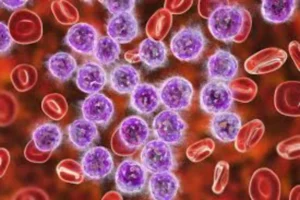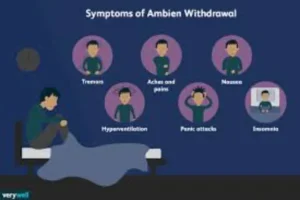Is ED in Your 20s Normal? Understanding Early Erectile Dysfunction

Erectile dysfunction (ED) is typically seen as a condition that affects older men, often attributed to age-related changes in hormone levels or vascular health. So when men in their 20s begin experiencing symptoms of ED, it can come as a shock. The truth is, ED is not exclusive to middle-aged or older adults. In fact, recent studies suggest that an increasing number of young men are reporting symptoms of erectile difficulties. If you’ve ever typed “sexologist near me” into a search bar out of concern, you’re not alone.
The question is: why is this happening, and more importantly, what can you do about it?
What Counts as Erectile Dysfunction?
Before diving into the causes and solutions, it’s important to understand what ED actually means. Erectile dysfunction is defined as the inability to get or keep an erection firm enough for sexual intercourse. It becomes clinically significant when the problem is consistent or recurring, rather than a one-time occurrence due to stress or fatigue.
Experiencing performance issues every once in a while is completely normal. However, if it’s affecting your confidence or relationship, it might be time to consider it as more than just a fluke.
Why Are More Men in Their 20s Experiencing ED?
While ED in older men is often linked to chronic health issues like diabetes, high blood pressure, or prostate conditions, younger men usually face different culprits. These can be both psychological and lifestyle-related:
1. Performance Anxiety
In your 20s, sexual performance can feel like a measure of self-worth. This pressure can create anxiety, which paradoxically makes it harder to perform. The more you worry, the worse the symptoms can become, creating a vicious cycle.
2. Porn-Induced ED
With easy access to explicit content, many young men find that their expectations of sex are skewed. Overexposure to pornography can desensitize arousal pathways, leading to difficulty achieving an erection with a real partner.
3. Poor Lifestyle Choices
Smoking, binge drinking, irregular sleep, and a sedentary lifestyle can all affect circulation and hormone levels. ED can be an early warning sign of broader health issues, even in your 20s.
4. Mental Health Struggles
Depression and anxiety don’t just affect your mood—they can interfere with libido and sexual function. In some cases, the medications used to treat these conditions (such as SSRIs) can also contribute to ED.
5. Relationship Issues
Sexual performance doesn’t occur in a vacuum. Communication problems, emotional disconnection, or unresolved conflict with a partner can all influence sexual health.
How Common Is ED in Your 20s?
A 2013 study published in The Journal of Sexual Medicine found that approximately 1 in 4 men seeking help for ED were under the age of 40. That statistic alone challenges the long-held belief that ED is an “older man’s problem.”
And yet, because ED is so stigmatized and associated with aging, young men often feel too embarrassed to seek help. This delay can lead to chronic issues, affecting not just sexual health but also mental well-being and relationship satisfaction.
Early ED: A Symptom or a Signal?
ED in your 20s is rarely an isolated issue. It can be a symptom of:
- Hormonal imbalance (such as low testosterone)
- Early cardiovascular problems
- Metabolic disorders like insulin resistance
The good news is that early ED can also act as a wake-up call—a prompt to re-evaluate lifestyle choices and seek medical guidance before other health problems emerge.
How to Approach the Issue (Without Panic)
If you’re in your 20s and experiencing ED, it can feel confusing or even shameful. But remember, sexual health is a valid and important part of your overall well-being.
Here’s a step-by-step approach to tackle the issue:
Step 1: Evaluate Your Lifestyle
Are you sleeping well? Exercising? Eating a balanced diet? High stress and poor self-care are often the root cause of sexual performance issues.
Step 2: Address Psychological Factors
If your ED seems to happen mostly with a partner but not when you’re alone, anxiety or self-esteem may be playing a role. Therapy or counseling can be incredibly effective in these cases.
Step 3: Speak to a Professional
This is where searching for a sexologist in pune becomes useful. A qualified sexologist can help diagnose the root cause—whether physical or psychological—and recommend appropriate treatment. Clinics in places like HSR Layout in Bangalore or Kharadi in Pune offer confidential, expert care designed for young adults facing these challenges.
Treatment Options for ED in Your 20s
Young men often respond well to early interventions. Depending on the cause, treatment might involve:
- Lifestyle Changes: Exercise, healthy eating, quitting smoking, reducing alcohol
- Cognitive Behavioral Therapy (CBT): To tackle performance anxiety or porn addiction
- Medical Testing: Blood tests to assess testosterone, blood sugar, and other markers
- Temporary Medications: Like sildenafil or tadalafil, under medical supervision
- Couples Therapy: If the issue is relational
In many cases, just knowing that there is a solution can offer immense relief.
The Role of Communication
If you’re in a relationship, talking openly with your partner about what you’re going through can make a huge difference. ED can be emotionally distressing for both people involved. Honest communication helps foster understanding, reduces pressure, and brings you closer together.
Partners who are supportive can play a vital role in recovery, especially when ED is rooted in psychological factors. Avoid blaming yourself or your partner—this is a shared challenge that can be overcome.
Busting the Myths
Let’s clear up some common misconceptions:
- Myth: ED means you’re not attracted to your partner.
- Truth: ED is more often linked to stress, anxiety, or health issues than attraction.
- Myth: It only happens to men who are out of shape.
- Truth: Even fit and active young men can experience ED due to mental health or hormonal imbalances.
- Myth: ED will go away on its own.
- Truth: Sometimes it does, but if it’s persistent, it deserves attention.
When to Seek Help
The moment ED begins to interfere with your confidence, relationships, or quality of life, it’s time to speak with a specialist. Waiting too long can lead to compounding stress and delay effective treatment.
Fortunately, finding help is easier than ever. With more clinics and professionals trained specifically in sexual health, there’s no need to suffer in silence. Searching for a sexologist near me can connect you with experts who understand what you’re going through and offer judgment-free care.
Final Thoughts
ED in your 20s isn’t as rare as you might think, and it doesn’t mean something is “wrong” with you. It does, however, deserve your attention. From stress and anxiety to lifestyle and hormonal factors, there are many reasons young men might struggle with sexual performance.
The good news? Most cases are highly treatable. Addressing ED early on can not only restore your confidence but also set the foundation for healthier long-term relationships and overall well-being.
If you’ve been concerned about your sexual health, don’t let embarrassment hold you back. Find a sexologist near me and take the first step toward understanding and managing what’s going on. You deserve to enjoy a satisfying, healthy sex life—no matter your age.







